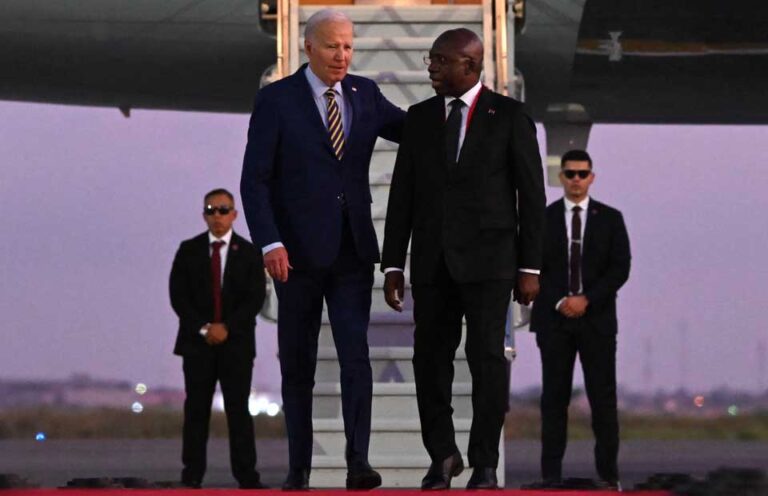As President Joe Biden embarks on his inaugural visit to Angola, marking the first trip by a sitting US president to sub-Saharan Africa in nearly a decade, questions arise about the significance of this late-stage engagement.
Biden landed in Angola on Monday on a delayed trip to Africa, his first and only visit to the continent during the final months of his term in office.
The last US president to visit the region was Barack Obama in 2015 when he travelled to Kenya and Ethiopia; since then, the continent has seemingly fallen off the radar of American foreign policy, particularly during Donald Trump’s administration, whose only engagement with African countries was through bilateral support.
With Biden’s term nearing its end, this visit raises the question: is it a meaningful commitment or merely a “by the way” visit?
Biden’s trip to Angola is framed as an opportunity to promote US investments in the country, particularly highlighting a $3 billion commitment for the Lobito Corridor – a redevelopment project aimed at enhancing railway connectivity between Zambia, the Democratic Republic of Congo and Angola.
This initiative is seen as a pivot to promote economic ties in a region rich in critical minerals essential for modern technologies such as electric vehicles and clean energy solutions.
The US aims to position itself to counter China’s growing investments in African mining and infrastructure.
Yet, the timing of Biden’s visit is telling.
His administration has faced criticism for its delayed focus on sub-Saharan Africa, with many observers interpreting this trip as an afterthought rather than a cornerstone of US foreign policy.
While White House national security spokesperson John Kirby asserted that the Biden administration “has absolutely transformed” US-Africa relations, analysts are left questioning the sincerity and longevity of this transformation, especially as they witness a pattern of neglect from Washington.
“The fact that Biden has left it until now to make the trip to sub-Saharan Africa is very instructive: it shows that Africa is not of much significance in the global scheme of things as far as the US is concerned,” noted political analyst Donald Porusingazi on Tuesday.
Biden’s visit comes on the heels of a long-standing sentiment in Africa that American attentiveness to the continent is sporadic at best.
His delayed trip, initially promised last year following the US-Africa Summit, was postponed multiple times, further reinforcing the perception that Africa remains a low priority for Washington.
While Biden is expected to engage with Angola’s leadership and visit a slavery museum to acknowledge historical ties, the broader implications of his visit reflect an ongoing struggle for relevance in a region that is rich in resources yet often overlooked by Western powers.
JN/APA


